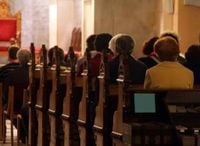As Easter approaches, many Catholics are gearing up for one of the most significant celebrations in the Christian calendar. Easter Sunday, which falls on April 20, 2025, is a day of mandatory Mass attendance for all Catholics, marking the resurrection of Jesus Christ. However, the question on many minds is whether attending Mass on Easter Monday, also known as Śmingus-Dyngus or Lany Poniedziałek, is obligatory.
In the Roman Catholic Church, Easter Sunday is the culmination of the Holy Week, which includes Maundy Thursday, Good Friday, and Holy Saturday. This period, known as the Paschal Triduum, is central to the liturgical calendar, and the Mass on Easter Sunday is a requirement for all faithful. The significance of this day cannot be overstated; it celebrates the foundation of Christian faith—the resurrection of Christ.
But what about Easter Monday? In 2025, this day will be observed on April 21. Unlike Easter Sunday, the Catholic Church does not mandate participation in Mass on Easter Monday. According to the Canon Law, specifically Canon 1246, the obligation to attend Mass applies only to designated holy days. This includes all Sundays and specific feast days, such as Christmas and All Saints' Day.
Many Catholics might be surprised to learn that Easter Monday is not considered a holy day of obligation. This means that, while it is a public holiday in Poland and a time for family gatherings and community celebrations, there is no requirement for Catholics to attend Mass on this day.
Despite the lack of obligation, many believers choose to participate in the Easter Monday liturgy as a personal act of devotion. For them, attending Mass is a way to express gratitude for the resurrection of Jesus and to continue the celebration of this pivotal event in the Christian faith. It serves as an opportunity to deepen their spiritual connection and engage with their community.
Śmingus-Dyngus, or Lany Poniedziałek, is also characterized by joyful traditions, including the playful custom of pouring water on each other. This tradition, which symbolizes the cleansing and renewal associated with Easter, fosters a sense of community and celebration among families and neighbors. While many people partake in these fun activities, others see Easter Monday as an extension of their Easter observance, choosing to attend Mass to commemorate the resurrection.
So, should you go to church on Śmingus-Dyngus? The answer ultimately depends on individual beliefs and traditions. While there is no religious obligation to do so, for many, attending Mass on Easter Monday is a meaningful way to celebrate the joy of the resurrection. It can be a wonderful occasion to gather with fellow believers and share in the spirit of Easter.
In summary, while Easter Monday is a public holiday and a day filled with cultural traditions, it is not a day of obligation in the Catholic Church. The Church's guidelines, as outlined in the Code of Canon Law, clarify that only designated holy days require attendance at Mass. Nevertheless, many choose to attend Mass on this day to enrich their spiritual experience and express their faith.
![Czy w Poniedziałek Wielkanocny trzeba iść do Kościoła? Sprawdź, czy w drugi dzień świąt jest obowiązkowa msza święta [21.04.25]](https://thumbor.evrimagaci.org/C9eebF7pz31LNvNX29w404T0pSQ=/200x0/tpg%2Fsources%2F0e16b3ea-5452-43d4-9bde-dceb4b4ad37d.jpeg)




